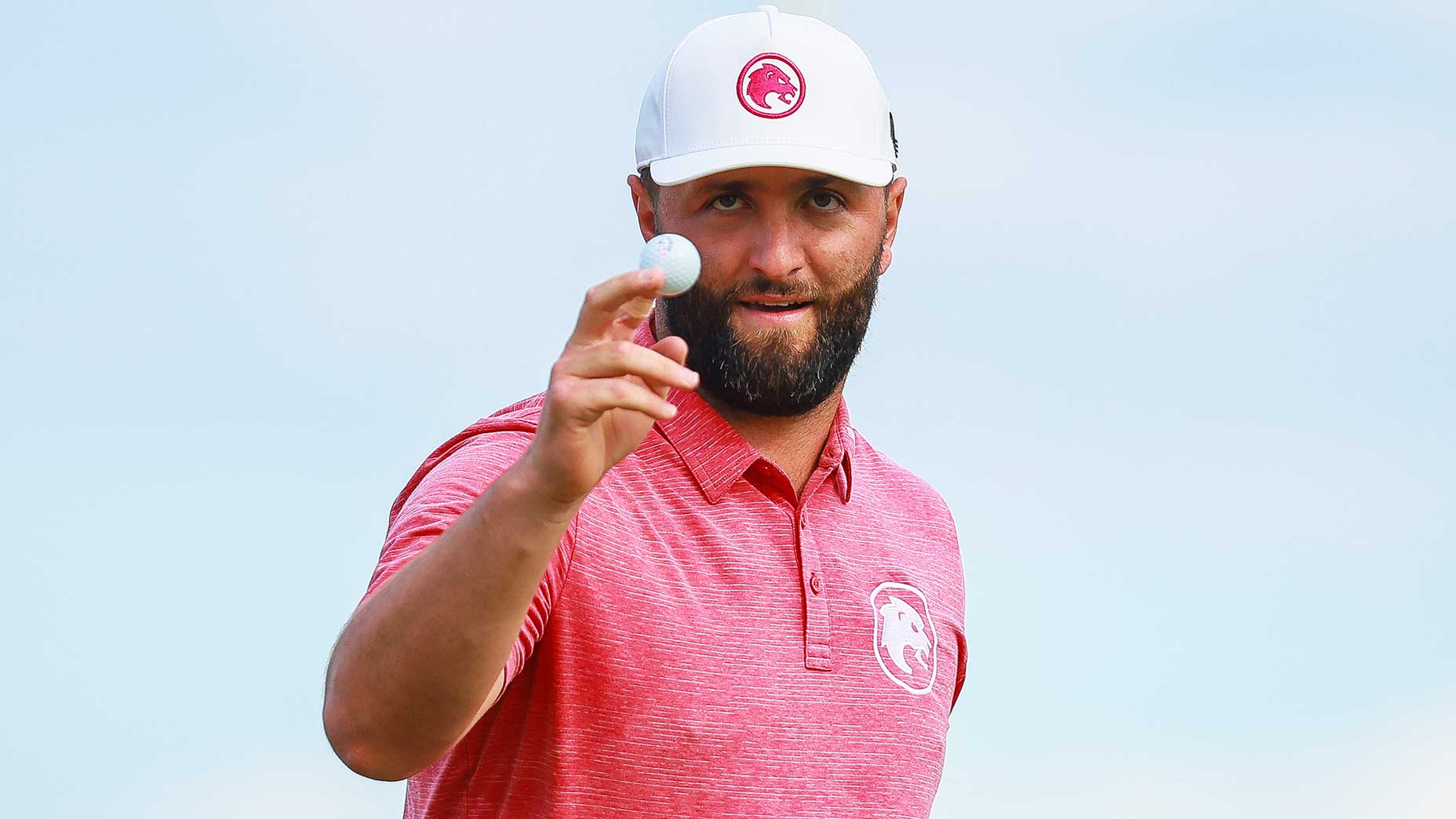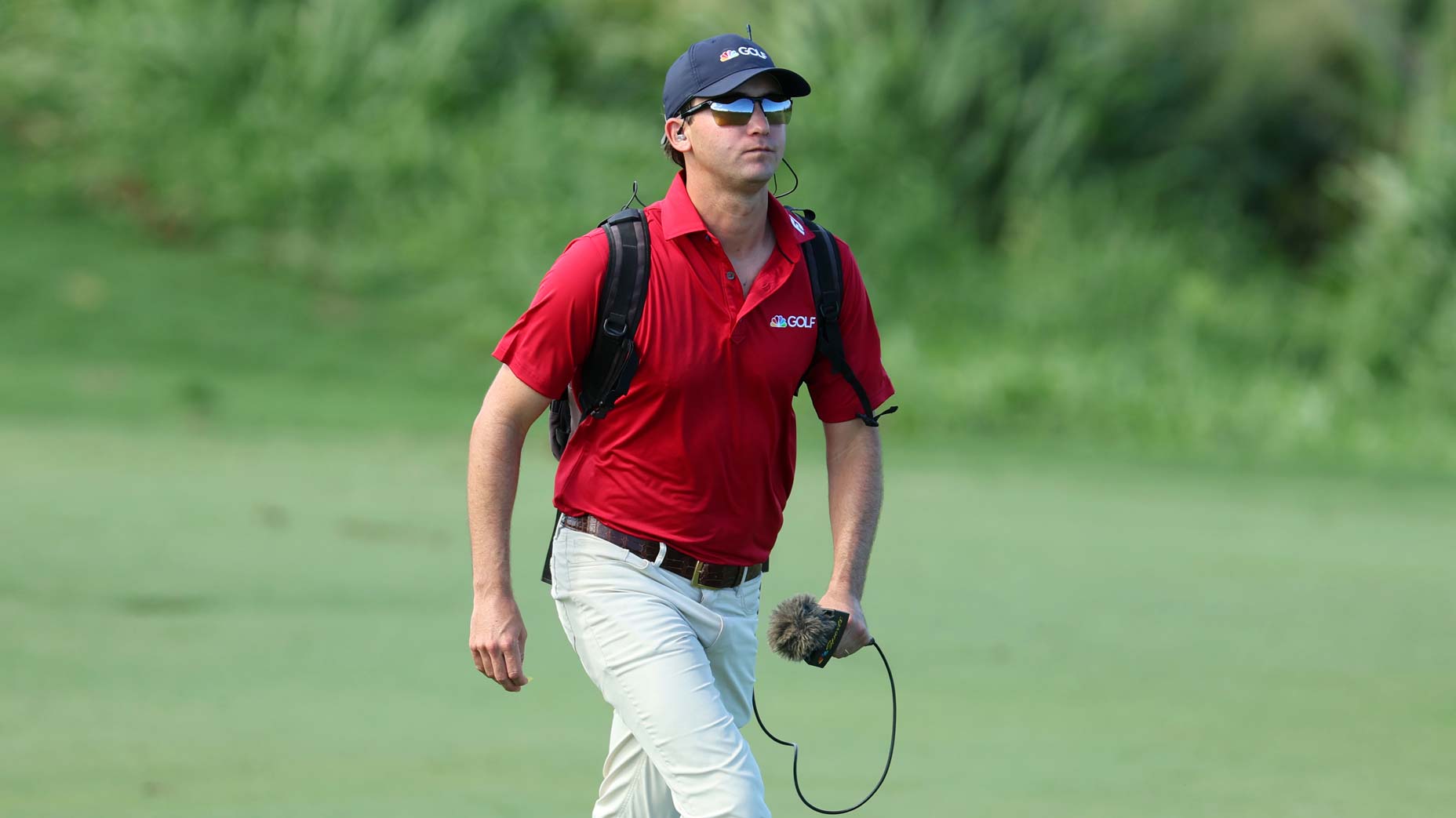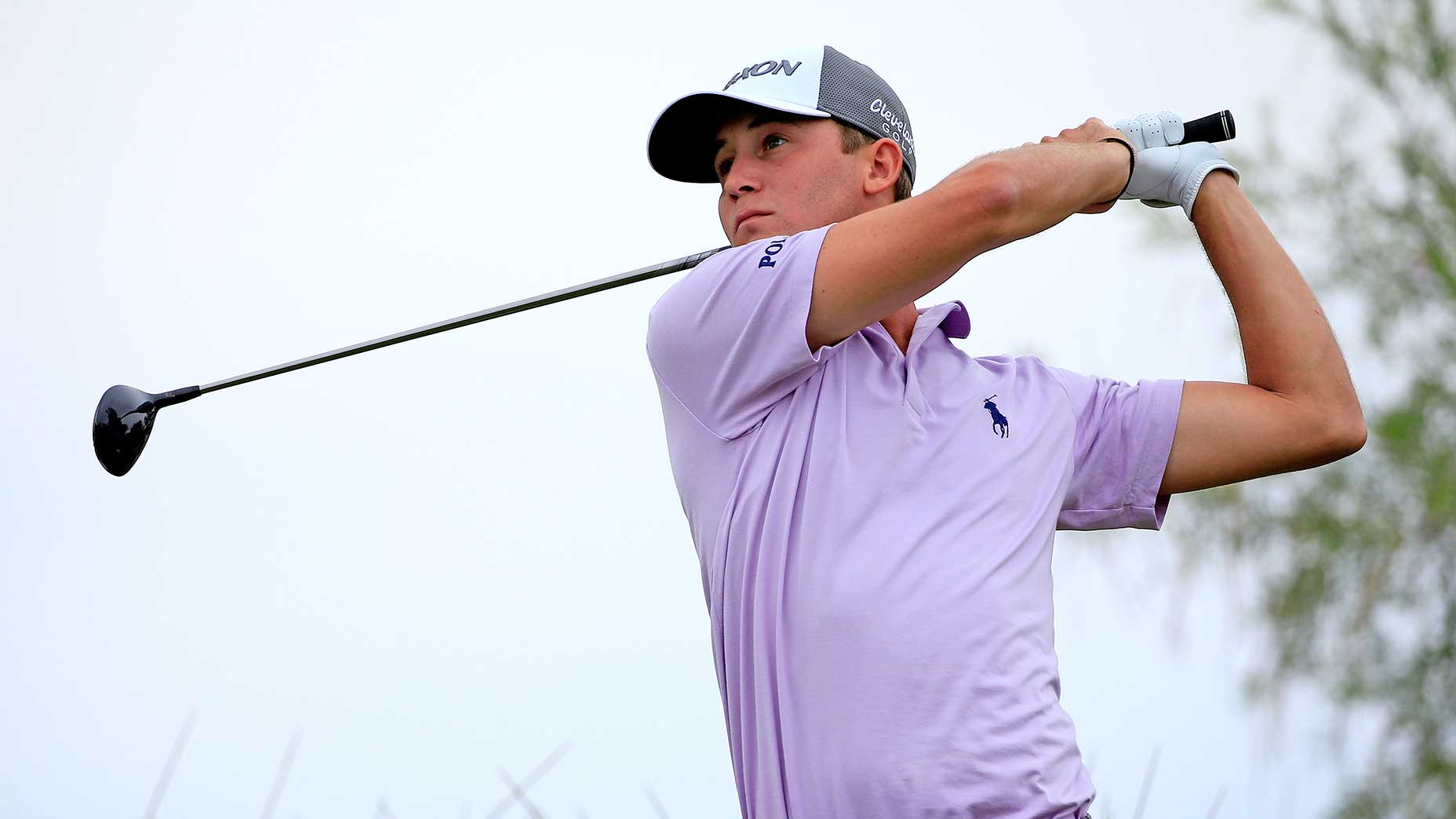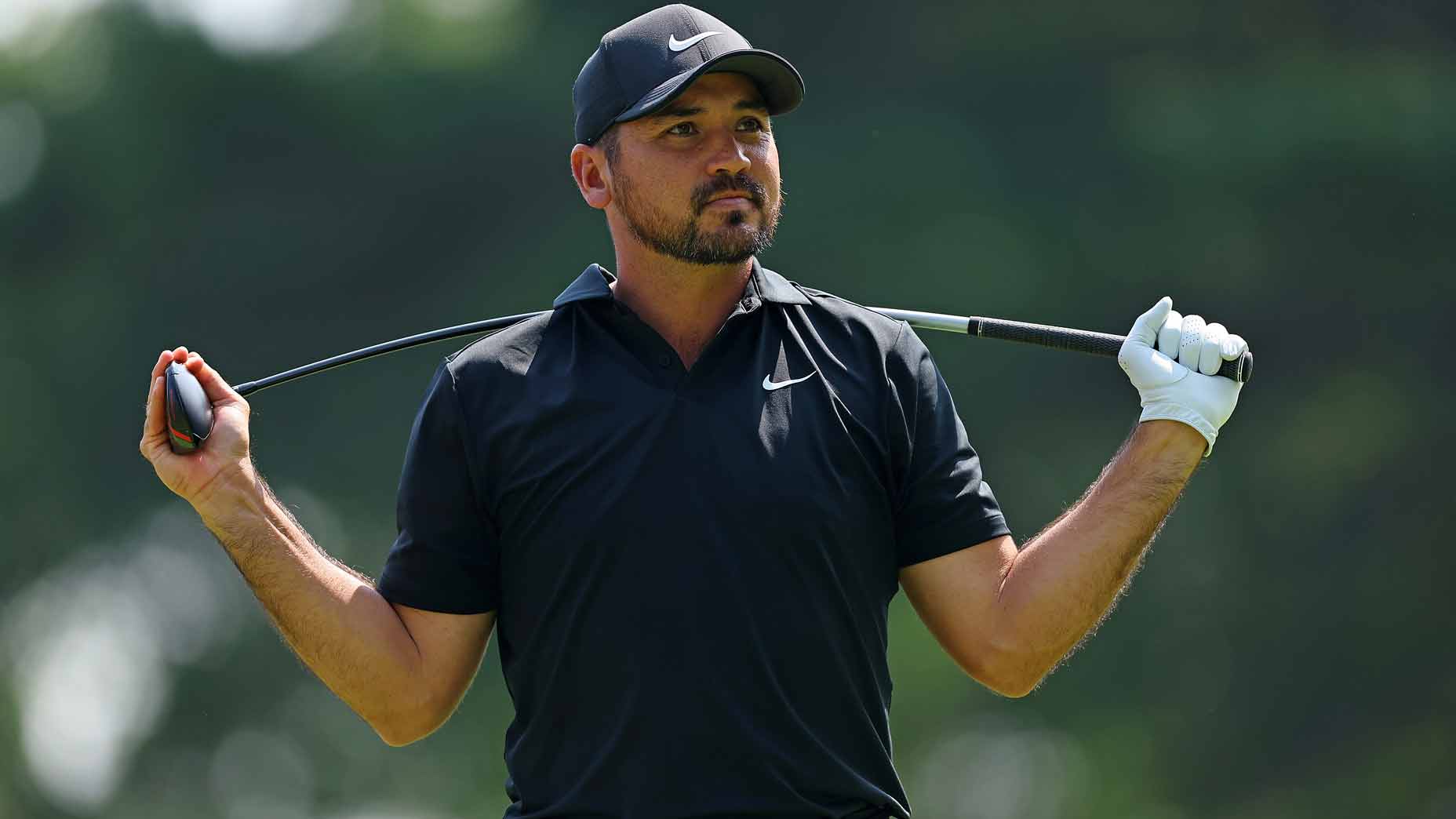From the outside, it’s easy to look at the golf career of Smylie Kaufman and point to the day where everything changed.
It was Sunday at the 2016 Masters and Kaufman, 24 years old at the time, was looking to cap off his meteoric rise to the top of the golfing world. He’d gone from a solid college player to a winning Korn Ferry Tour pro to shooting 61 on Sunday of the Shriners Children’s Open to win in the fall of his rookie year on the PGA Tour. And now, thanks to a round of 69 in brutal Saturday conditions, he’d played his way into the final group at Augusta National alongside his good buddy Jordan Spieth. The golf course suited him. He felt the moment did, too. He might not win the Masters, but this promised to be a career-changing day.
“If I could pick a golf course design to say ‘this suits your game the best,’ it would be Augusta National,” he says. We’re sitting by the range at Sea Island on the eve of this fall’s RSM Classic, in conversation for the second episode of Breakthrough, which you can watch above or on YouTube here. I’m not sure how willing Kaufman — now a popular on-course analyst for NBC Sports — will be to tell the story of his playing career but he lets the words spill out, one story into the next, far enough removed that he’s comfortable sharing, recent enough he can still feel it all.
And he remembers there’s no day in golf quite like Masters Sunday.
“It just takes a while to get to 3 o’clock,” he says, remembering that Sunday. “I was pretty bored that day, to be honest. I was looking for anything to do, I turned on the Golf Channel. And I’m a sucker for certain movies, if it’s on I have to watch it. And Tin Cup is one of them. I wish someone had taken the remote and turned the channel, because Tin Cup is not what you should be watching on Sunday if you want to go win the Masters. So that wasn’t helpful.”
Not a good start. But it’s worth remembering this next part instead.
“I get out there and it’s the first time on the range that I’ve ever had any wrist discomfort,” he says. “I get on the range and I start feeling something in my wrist.”
Kaufman’s trainer took a quick look and told him that he should be good for the day. Kaufman believed him. As he warmed up, the wrist felt better. He doesn’t use that as an excuse for what happened next; he admits it didn’t bother him for the rest of the day. But it turned out to be a harbinger of things to come.
Kaufman’s round got off to a strange start. He stuffed his approach at No. 1 to four feet and missed the putt. He actually birdied the par-5 second. But that was the last good thing to happen for a while. He wasn’t nervous, he insists. He was just a little bit off.
“I learned some things I would have been able to use for the next time,” he says wistfully. “I just had some really terrible breaks. And that’s Augusta National. When you’re like, a foot off, it can really mess you up and get you in some really terrible spots.”
He never got comfortable with the speed of the greens, which he describes as having turned “purple” overnight. Compounding and discomfort was the effect of being paired with Jordan Spieth, whose final-round collapse was far more dramatic and likely commanded more of your attention.
“He was making putts, everybody was moving, and I just could not settle down. I wasn’t able to take that extra deep breath that day,” Kaufman says.
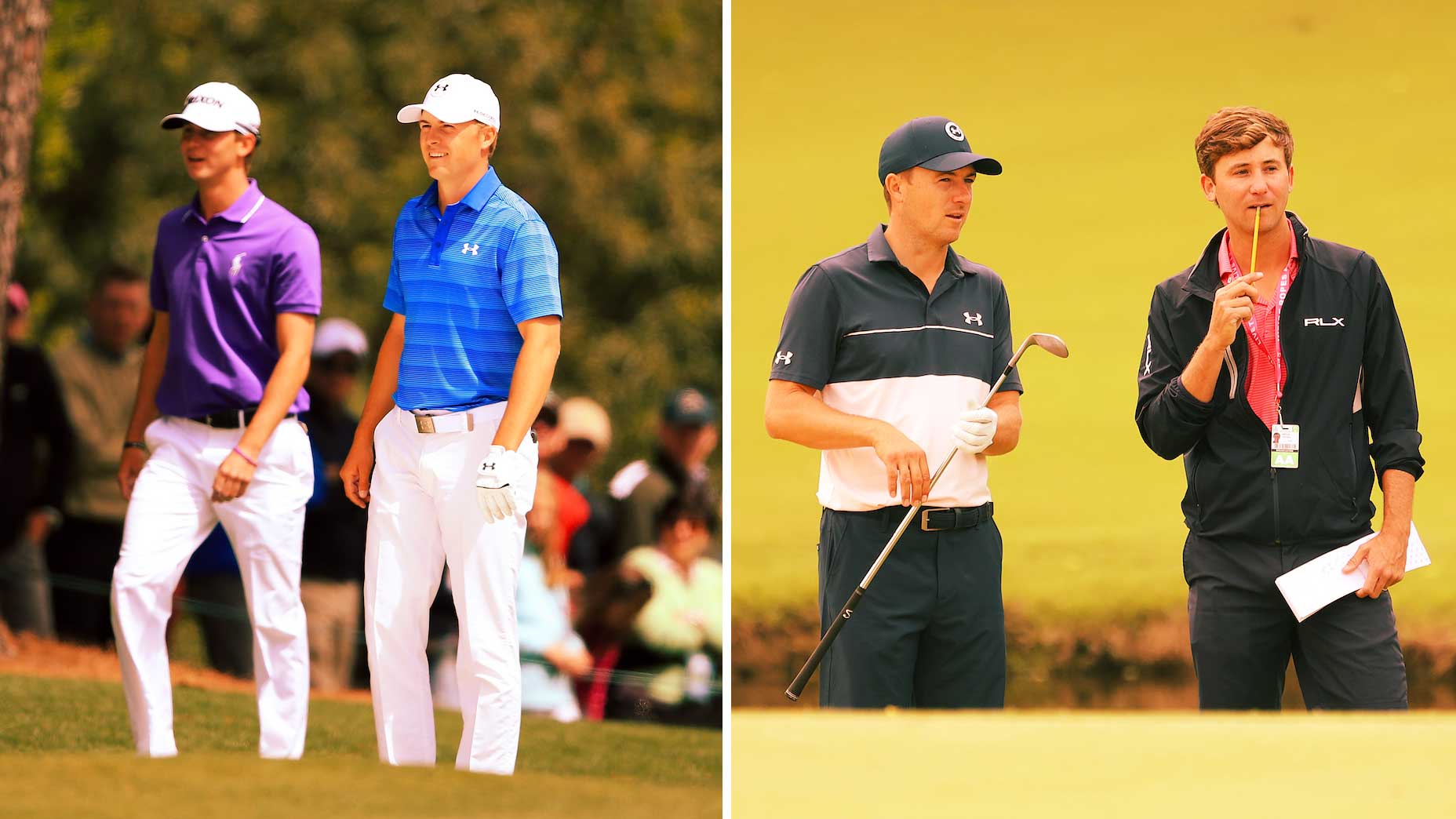
He bogeyed 3 and 4. He bogeyed 7. Then 9. Then 10. Then 11. When they got to No. 12, Spieth hit two balls in the water, giving up the lead en route to a tragic quadruple-bogey 7. But in a dark irony that was Kaufman’s best moment of the day; he stuck his tee shot and fist-pumped in a birdie putt.
Still, that would prove the lone bright spot of the back nine for either buddy. Kaufman bogeyed 13 and then finished double bogey, bogey, bogey for a final-round 81. He plummeted to T29.
It would be understandable if Kaufman had allowed that moment to break him; he’d hardly be the first golfer to get undone by Augusta National. But Kaufman is a tough guy to rattle and insists he left the week optimistic.
“From a mental standpoint I thought I had learned so much, that I would be able to use those experiences for the next time, that I was like, dude, my first Masters I made it to the final group?”
Mostly he was frustrated that he’d let a 76 balloon to an 81, keeping him from automatically qualifying for the next year’s event.
Looking back now, however, the difference between 76 and 81 seems meaningless compared to that little twinge he felt on the range.
A string of missed cuts came in the weeks that followed; three in a row and eight of the next 11. His rookie season was derailed. His reliable ball-striking had gotten shaky. Still, couldn’t put his finger on an explanation until far later.
“Really it was my wrist that was preventing me from doing the things we were trying to do in the golf swing,” he says. He left his longtime coach Tony Ruggiero. He left his next coach, too, and his next coach after that. He was looking for a magic solution. There wasn’t one to be found.
Kaufman’s profile had risen even as his game and health had disappeared. That’s because this timeline coincided with the spring break trip he’d taken with Rickie Fowler, Jordan Spieth and Justin Thomas to the Bahamas, where they ushered in a new era of golf-on-social media with a buddies trip that quickly made the rounds. Kaufman had never said he thought he was as good as his travel-mates, but still — the pressure mounted by association. The negativity began to build on itself.
“I would say the physical injuries that I had led to a lot of the mental hurdles that I had,” he says. “And at that same time was kind of the rise of social media in golf … I saw the best and worst of it in such a snapshot of a couple years.”
In 2017 Kaufman’s struggles continued; he nabbed two top 10s but missed 15 of 27 cuts. Then came 2018. He made the cut in his second start of the year, the CareerBuilder Challenge, and finished T69. Then he missed every cut the rest of the season.
“Not only was I trying to play better, I was trying to tackle a golf course where it felt like there was a bear in the woods I felt like was trying to chase me down,” he says. “And I’m over here trying to prove Joe Schmoe wrong that I’m a good player. It just — I think mentally I wasn’t ever really prepared. I’ve never had anybody tell me that I suck.”
He had no good way to deal with the anxiety that had risen to the surface. And he didn’t feel like he could step away and get healthy. When he went home, Kaufman couldn’t get away from the game. When he was at the course he couldn’t get away from a big right miss.
He made just one PGA Tour cut in the years that followed, a 71st-place finish at the 2019 Rocket Mortgage Classic.
He’s tempted to say he has no regrets, given the place he’s ended up. But that isn’t quite true.
“Maybe the only regret would be that I did have injuries and I really did have some serious tendonitis going on,” he says. “It didn’t require surgery but it was a chronic tendonitis in my wrist and then my left elbow. So there was probably moments where I could have taken six to nine months off to really get healthy, and it would have helped me, in that time period, to settle down, press the brakes, almost have a golf retreat with my team to get everybody back on the same page and get me confident again.
“I think it got a little too fast, me trying to fix things.”
There’s a happy ending to this story — one that continues at this week’s Sentry with a microphone in hand. I hope you’ll watch the rest of the interview to hear how that happened next, but I’ll leave you with a serene scene courtesy of Kaufman, this October.
“The end of this year, at the Ryder Cup — I’m not an emotional person, I’m not a cryer,” Kaufman says. “If it’s a sad movie I can’t even tear up.”
“But I’m walking down the first fairway and my wife was up there, she came for the week. It was just so cool to see her and then I was walking up the fairway and I was literally tearing up, emotional. I was like, this is exactly where I should be.
“You are where your feet are, and I was very happy with where my feet were.”
You can watch the complete interview below.


